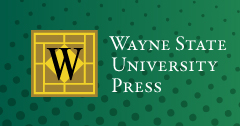Abstract
Amid the social and political changes that Israel has seen in recent decades, gender and ethnicity and their place in Jewish rituals are finding more and more representation in art discourse and visual culture. Life in a Jewish and democratic state, as Israel defines itself, lays questions of halakha (codified religious law) at the doorsteps of Jewish women, religious or not. Thus, halakhic issues appear in the current works of Orthodox women artists, joining those artists who define themselves as Masorti (traditionalist) and others who do not lead religious lives but tackle post-secular challenges as secular believers or are just nonobservant. Discussed below are video art works by several Jewish-Israeli women artists, focusing on those who identify as Mizrahi-Masorti and use gendered lenses to investigate the Israeli post-secular discourse on halakhic texts and practices from intersectional perspectives on body, ethnicity, and gender. Their critical view transcends the trite binary demarcation of Israel’s religious and secular realms. Their video art works, I argue, express a demand for dual recognition of their reference to Jewish law: by Israel’s hegemonic society and by its art discourse. Through them, these artists define and redefine their female Mizrahi-Masorti identity as a continuous performance of the self.
Recommended Citation
Guilat, Yael
(2021)
"Body, Ethnicity, and Gender in Video Art Works of Three Mizrahi-Masorti Women Artists in Post-Secular Israel,"
Jewish Film & New Media: Vol. 9:
Iss.
2, Article 4.
Available at:
https://digitalcommons.wayne.edu/jewishfilm/vol9/iss2/4
